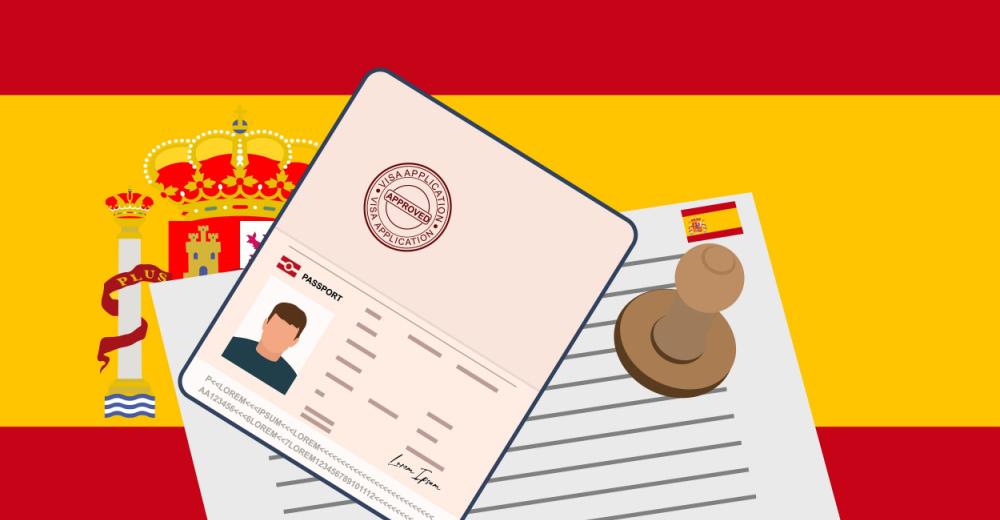How To Apply For A Spanish Nie Number

Moving to another country, even for just a few months, can be very exciting – but also very stressful. Staying in another country legally involves a lot of paperwork, especially if you intend to work, study, or carry out other economic activities while you’re there.
When it comes to moving to Spain as a foreigner, or even just buying a property in Spain to occupy part-time or rent out, one thing every foreigner needs is an NIE number.
You may have already heard of this number while researching, but may still be wondering what it is, why you need one, and how to apply. This guide is here to answer all your questions, explaining how to get an NIE number in Spain.
What is an NIE number in Spain?
The NIE, or Número de Identificación de Extranjeros, is a Foreigner Identification Number that is assigned to non-nationals in Spain by the Spanish government.
This unique code is essentially a tax reference number that allows the Spanish authorities to identify foreign nationals who are engaging in economic, professional, or domestic activities in Spain, outside of the bounds of a tourist visa.
Even if you don’t live in Spain or stay long enough to be classified as a tax resident, you’ll still need to register for an NIE number. Your NIE document will feature your full name, date of birth, country of birth, and your assigned Foreigner Identification Number.
It’s important to remember that the NIE is mostly for identification for administration purposes and does not count as proof of the right to residency. For this, you will also need to apply for the correct visa to travel to Spain and then a residence permit.
What do you need an NIE number for?
As a foreign citizen, if you want to work, buy property, and pay taxes you’re liable for in Spain, you must obtain an NIE number. Staying in Spain for tourism or leisure for less than 90 days doesn’t require registering for an NIE, but staying for longer or the following purposes does:
- Buying property in Spain
- Starting a business in Spain
- Working for a Spanish employer (including paid internships)
- Working as a freelancer or self-employed individual
- Living with a family member or friend for several months
Even if you are not considered a Spanish tax resident – staying in Spain for longer than 90 days but less than 183 days of the year – you’ll still need an NIE to conduct your activities in Spain legally. An NIE number will be necessary do to the following things in Spain:
- Open a bank account
- Rent, buy, or sell property
- Buy a car or get a driver’s licence
- Set up utilities or telecoms contracts
- Apply for loans or mortgages
- Be employed or establish your own business
- Study a higher education course
- File tax returns and pay taxes
- Inherit Spanish assets
Basically, you can’t get anything done to build a life in Spain as a foreign national without an NIE number. That’s why it’s essential to apply for one as soon as possible when making plans to relocate to Spain, even temporarily.
Which documents do you need to get an NIE number?
To apply for an NIE number in Spain, you’ll need to provide certain documents as evidence of your identity and reasons for coming to Spain.
First of all, you’ll need to fill out and sign the NIE application form (while you can view English versions of the form for guidance, you must fill out the Spanish form). The standard initial application form for an NIE certificate for all non-Spanish nationals is the EX-15, though EU citizens who want to apply for residency may prefer to go directly for the EX-18 form.
The application form will ask for your personal information, such as your name, age, and address, as well as your reasons for coming to Spain and requiring an NIE number. Depending on your reason, you may need to provide additional evidence – for example, a real estate contract, an employment contract, certification of enrolment in a higher education or training course, or proof of connections and identification if you’re visiting someone for a few months.
You will also need a passport (current, not expired), a colour photocopy of it, and at least two passport photographs to prove your own identity and citizenship.
Additionally, you’ll need to prove that you have adequate finances to support yourself throughout your stay (such as a bank statement or payslips). You’ll also need to set up a private healthcare insurance policy with a provider in Spain.
You should provide one original version and one photocopy of each document as a back-up, and ensure they are legalised copies presented in Spanish. This means documents must be professionally translated and apostilled by a certified notary.
The Spanish government charges a small fee of around 10–15€, which must be paid through a Spanish bank using form 790. You must provide a receipt for this payment before you can receive your NIE document.
How to apply for an NIE number in Spain
Some people may prefer to travel to Spain on a short-term visa first, then apply for an NIE number while they’re in the country. This can only be done by appointment at the nearest immigration office (Oficinas de Extranjeros), or a national police station (Comisaría de Policía).
You can apply for an appointment online, but there may be a waiting period of a month or more until the next available appointment, so you should book as early as possible. You should also bear in mind two important things:
- You can only attend a police station appointment in the area you have a valid address in (you’ll have to provide proof of this address).
- Spanish authorities may not be able to speak English, so you’ll either need to speak Spanish yourself or take a translator with you.
On the day of your appointment, you must bring all the relevant documents to the immigration office or police station. Be sure to double-check which documents they require ahead of time so you aren’t missing anything.
After attending the appointment and submitting your completed form, documents, and payment receipt, you should be given a time and date to come and collect your NIE document from the same office or police station.
How to get an NIE number outside of Spain
If you are living outside of Spain and want to apply for your NIE in advance of travelling there, you can do so at a Spanish embassy or consulate in your home country. There are often multiple embassies in major cities, so you can check your government website to find the nearest one.
You should then be able to book an appointment there online, though limited availability may mean waiting for 1–2 months. However, this should give you enough time to gather and prepare all your documents – including translation and apostillation – to bring along to your appointment.
Again, after attending the appointment and handing over your application documents, you should be given a timeline for receiving a decision. If your application is accepted, you must travel back to the embassy to collect your original documents, and either be presented with your NIE document or receive confirmation that you can collect it from an immigration office or police station in Spain.
You should also be aware that if you’re coming to Spain as a non-EU citizen, you’ll have 30 days from your arrival in the country to register at the nearest immigration office or local police station and use the EX-17 form to apply for a TIE card.
The Tarjeta de Identidad de Extranjeros is a Foreigner Identification Card for non-EU nationals who want to reside in Spain. While the NIE is an administrative code, the TIE authorises the holder to live in Spain as a resident.
How long does it take to get an NIE number?
Once you’ve presented your application documents and received an official receipt of submission, you’ll have to wait for notification of approval, and – if approved – when your NIE document will be available to collect. This could take a few weeks, depending on how you apply.
If you apply locally in Spain, it’s likely to be faster, with your NIE document ready in as little as a few days. However, if you apply at an embassy or consulate in your home country, your application will obviously take longer to process – possibly up to 8 weeks.
The best thing to do in either case to avoid delays is to apply as early as possible before you need the NIE number, and make sure all your paperwork is in order so nothing inaccurate, missing, untranslated, or unapostilled can hinder the process. It can help to hire a professional, such as an immigration lawyer, to manage this for you.
When you have received your NIE document, you should make sure to keep it safe, and keep photocopies of it in case you lose the original and need to request another. Your personal NIE number remains the same and does not have an expiration date, so you won’t have to get a new one or start the application process all over again.
Can a Spanish lawyer submit my NIE application?
As applying for an NIE number can be a difficult bureaucratic process, especially for non-Spanish speakers, many applicants find it easier to hire Spanish immigration lawyers. While you do have to pay for their services, it can save you time and stress when completing your NIE application.
Outsourcing to an external party means they can tell you exactly which documents you need to fill out and supply, check that they’re correctly translated and apostilled, make appointments for you, submit everything on your behalf, and even collect your NIE document for you, if you wish.
To authorise a third party, you’ll need an additional officiated document transferring power of attorney to your designated representative. As receiving an NIE also typically requires providing an address in Spain, your representative can use their address.
With a Spanish immigration lawyer on your side who speaks the language, knows the law inside out, and is familiar with how things are done there, you can rest assured that you have high chances of successfully receiving an NIE number as quickly as possible.








